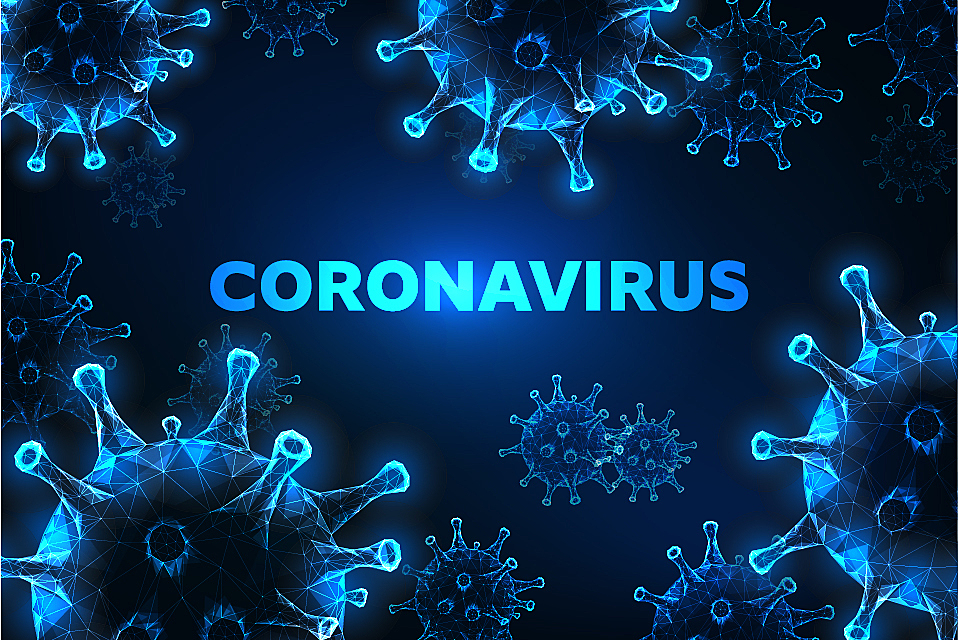

: Admin : 2020-09-19
The coronavirus that causes COVID-19 can sometimes hijack brain cells, using the cells' internal machinery to copy itself, according to a new study.
The research, posted Sept. 8 to the preprint database bioRxiv, has not yet been published in a peer-reviewed journal, but it provides evidence that SARS-CoV-2 can directly infect brain cells called neurons. Although the coronavirus has been linked to various forms of brain damage, from deadly inflammation to brain diseases known as encephalopathies, all of which can cause confusion, brain fog and delirium, there was little evidence of the virus itself invading brain tissue until now.
"We are actively looking at more patient tissues to be able to find how frequently such brain infections occur ... and what symptoms correlate with infection of which areas of the brain," senior author Akiko Iwasaki, an immunologist at Yale University, told Live Science in an email. In addition, scientists must still figure out how the virus enters the brain in the first place, and whether it can be kept out of the brain, the authors noted in their report.
Human, mouse and mini-brains
To see whether SARS-CoV-2 could break into brain cells, the study authors examined autopsied brain tissue from three patients who died of COVID-19. They also conducted experiments in mice infected with COVID-19 and in organoids — groups of cells grown in a lab dish to mimic the 3D structure of brain tissue.
"This study is the first to do an extensive analysis of SARS-CoV-2 [brain] infection using three models," said Dr. Maria Nagel, a professor of neurology and ophthalmology at the University of Colorado School of Medicine, who was not involved in the study. Previously, there were only "rare case reports" of SARS-CoV-2 RNA and viral particles found in post-mortem tissue from patients, Nagel, who specializes in neurovirology, told Live Science in an email.
Next steps
The organoid and mouse studies offer hints at how lethal SARS-CoV-2 can be if it reaches the brain. But now, scientists must see if the same results carry over to humans.
"Every experimental system has its limitation," Iwasaki noted. For instance, COVID-19 infection may progress differently in mice than it does in humans, and while organoids somewhat resemble a mini-brain, they do not contain immune cells or blood vessels like the full-size organ, she said.
In addition, "in humans, virus is not directly introduced into the brain" as it is in mouse experiments, Nagel said. Scientists will need to examine more autopsied tissue from COVID-19 patients to determine whether the findings of this preliminary work hold up in larger groups of people.
Nonhuman primates infected with SARS-CoV-2 could also serve as research models, since the supply of human brain tissue is limited, Nagel said.
"Virus may be present in specific brain regions or may have more indirect effects on neurological function," Nagel added. In particular, some patients experience symptoms reminiscent of chronic fatigue syndrome for months after their initial COVID-19 infection takes hold; it's been suggested that the syndrome arises from changes in hormone function regulated by the specific parts of the brain, she noted. Another key question is whether the "virus affects the respiratory center in the brainstem — contributing to respiratory failure in critically-ill COVID patients," she said.
What's more, scientists still need to figure out how the virus sneaks into the brain in the first place.
When scientists learned that COVID-19 can disrupt people's ability to smell and taste, some theorized that the virus might infect the brain directly by traveling through nerves in the nose, Live Science previously reported. The virus may invade the brain through the nose, Iwasaki agreed, or it might enter through the bloodstream by crossing compromised regions of the blood-brain barrier — a wall of tissue that normally separates brain tissue from circulating blood and allows only certain substances through. Learning what route the virus takes into the brain will be key to preventing and treating the infection, the authors noted.
Disclaimer: This article is sourced from livescience.com without any changes in the contents thereof. Only the title has been edited by Meddco.com The facts and the opinions appearing in the article do not reflect and describe views of meddco.com
Meddco infect brain cells infectious disease covid-19 crisis coronavirus antibody tests coronavirus infection corona virus covid-19 coronavirus mask coronavirus vaccine pandemic coronavirus coronavirus in india coronavirus test covid-19 test coronavirus treatment covid-19 treatment therapies book appointment affordable treatment packages surgery packages doctor near me hospital near me hospitals doctor
No Comments